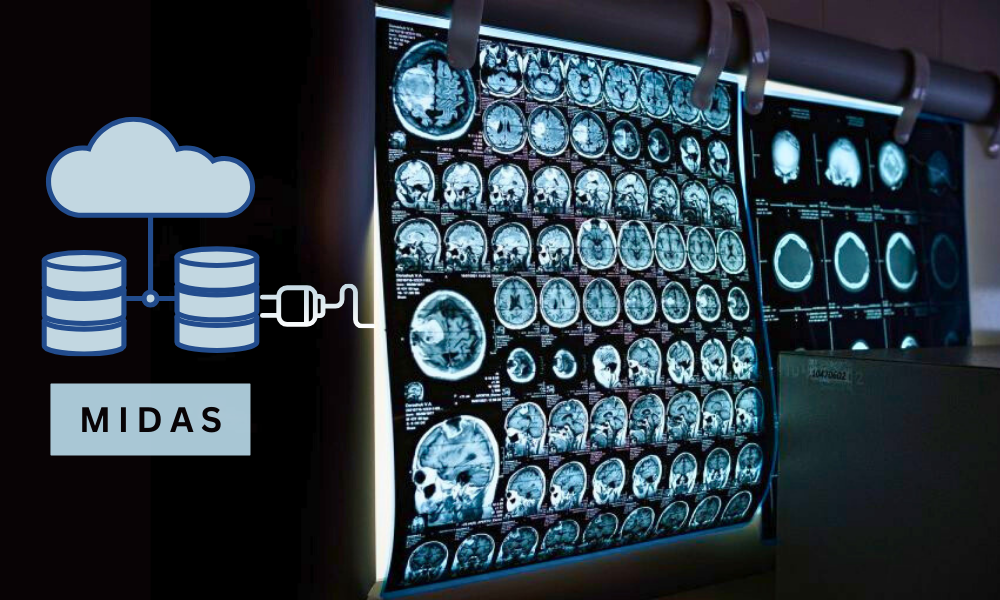
IISc and Indian Council of Medical Research (ICMR) have collaborated to form 'India-MIDAS'
IISc-ICMR-ARTPARK collaboration seeks to build gold-standard medical datasets representative of the Indian population.
IISc (Indian Institute of Sciences, Bengaluru) and the Indian Council of Medical Research (ICMR) have entered into a collaboration to form — India-MIDAS (Medical Imaging Data Sets), which aims to establish institutional mechanisms for collecting, managing, and facilitating the use of medical imaging data from across India.
Fifteen years ago, a scientific commentary highlighted the shortage of imaging experts in India. Fast forward to years 2023, the situation remains the same. India still has very few radiologists, resulting into longer wait times, and delayed diagnoses and treatments.
While Al has been under a skewed spotlight, its use in medicine is promising. To train Al to diagnose diseases, there is a need for collecting good medical imaging data (X-ray, ultrasound and MRI) . For this reason, IISc and ICMR have collaborated to form 'India-MIDAS'.
To train all these AI models to diagnose diseases, there's a need for data. Not just data, ‘good’ data, explains Debnath Pal, Professor at the Department of Computational and Data Sciences, IISc.
“Good data is that set of data that helps answer your [research or medical] question with minimal failure,” says Debnath Pal. According to Debnath, biology is a complex field, and the data required to answer a question of interest – such as diagnosing a specific disease – should be carefully collected.
There is a need for collecting good medical imaging data, such as CT and MRI scans, and X-ray images, especially from the Indian population.
It is for this reason that IISc and ICMR have come up with the idea of creating India-MIDAS (Medical Imaging Data Sets).
The project is funded by ICMR and will work through a hubs-and-spokes model where IISc is the nodal centre.
Debnath points out that the closest match to this kind of data bank elsewhere is the UK Biobank, a large-scale platform in which carefully curated and anonymised biomedical data from 500,000 participants is made available for researchers studying a variety of diseases and treatments. This includes full body MRI scans, whole genome sequences, dozens of blood biomarkers, data from physical activity monitors, and more. About 10,000 different variables have been collected for each participant, creating a gold mine of data to tap into for research.
The AI and Robotics Technology Park (ARTPARK) at IISc has also been roped in as a technology partner to oversee the building of the platform.
The ICMR-IISc team hopes that their collaboration will bypass existing problems of collecting and preserving good data. More importantly, it will also take steps to ensure patients’ privacy, according to Raghu and Debnath.
Each scan or dataset that will be fed into the database will be anonymised by removing any information that can be used to identify a patient. This is done by assigning coded information to each image, called labelling. Labelling is also important for training AI models that can help scan such images for medical applications.
As a first step in this collaboration, researchers at AIIMS Delhi have already begun collecting images of oral cancer and precancer cases, and labelling them.
The goal is that once all the data is collected and organised, any authorised institution or researcher can put in a request to access the data that they need, whether it is for a study testing the effects of a new treatment for a disease, or a startup trying to build an AI model for diagnosis.
Efforts like these can greatly help the research community at large. For instance, in 2021, the UK Biobank released the whole genome sequences of 200,000 participants, to help researchers uncover links between DNA and disease. In a similar vein, datasets available through MIDAS can accelerate medical research in India using data that represents the Indian population.
More at – IISc.ac.in







 IndianWeb2.com is an independent digital media platform for business, entrepreneurship, science, technology, startups, gadgets and climate change news & reviews.
IndianWeb2.com is an independent digital media platform for business, entrepreneurship, science, technology, startups, gadgets and climate change news & reviews.
ليست هناك تعليقات
إرسال تعليق